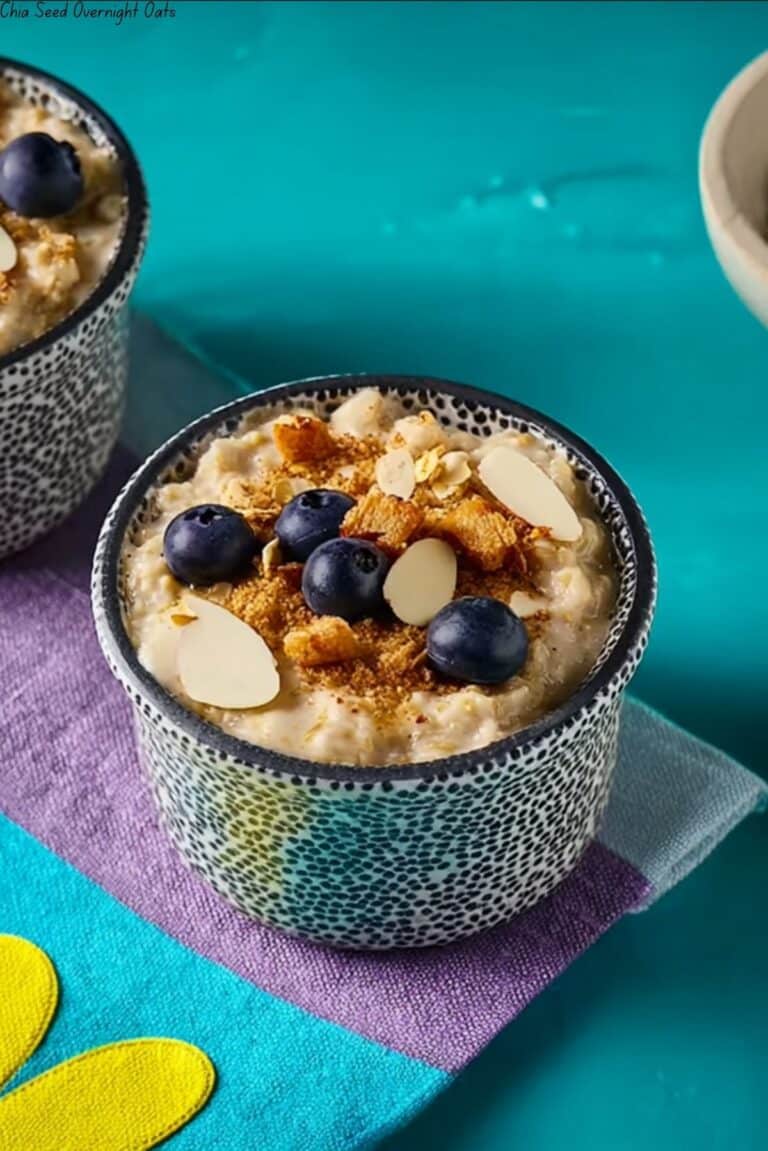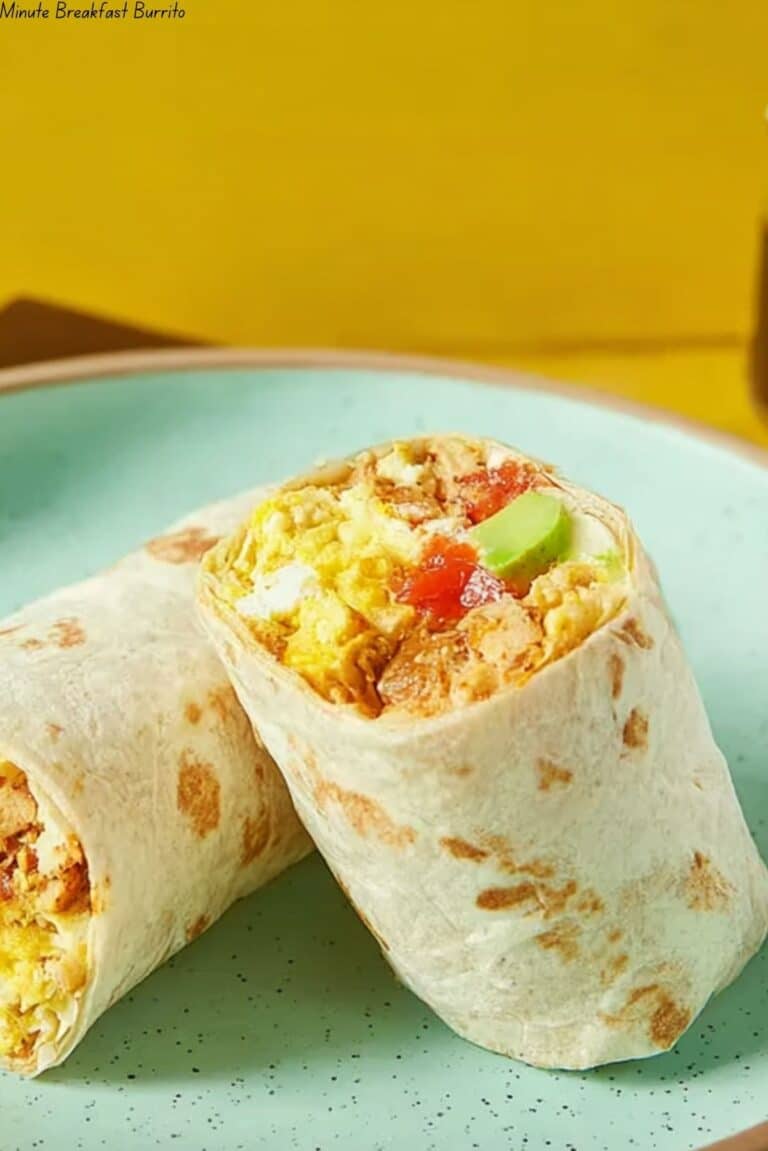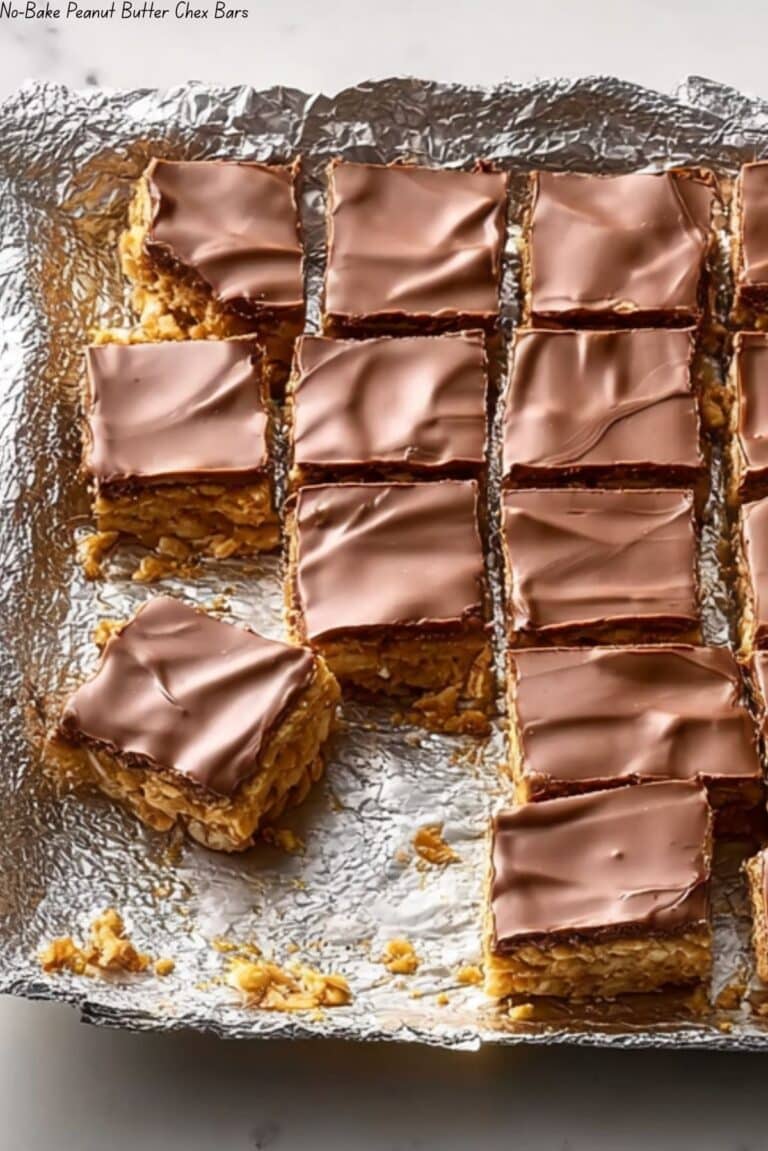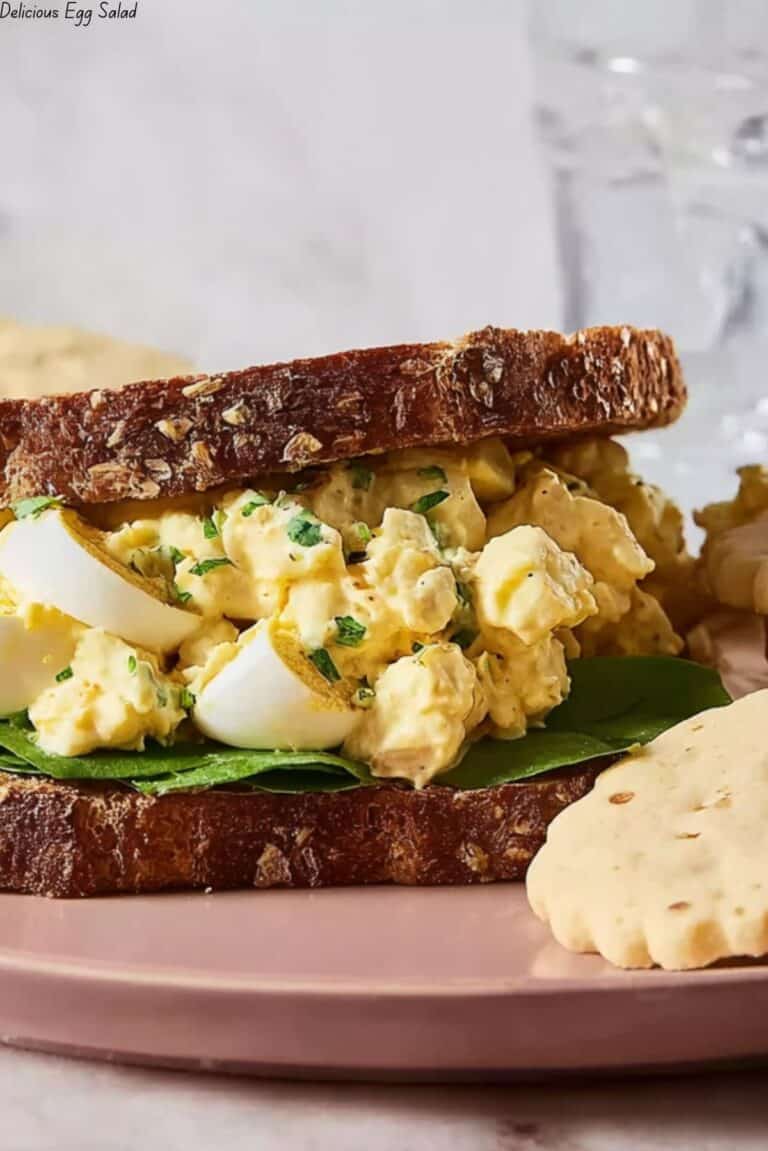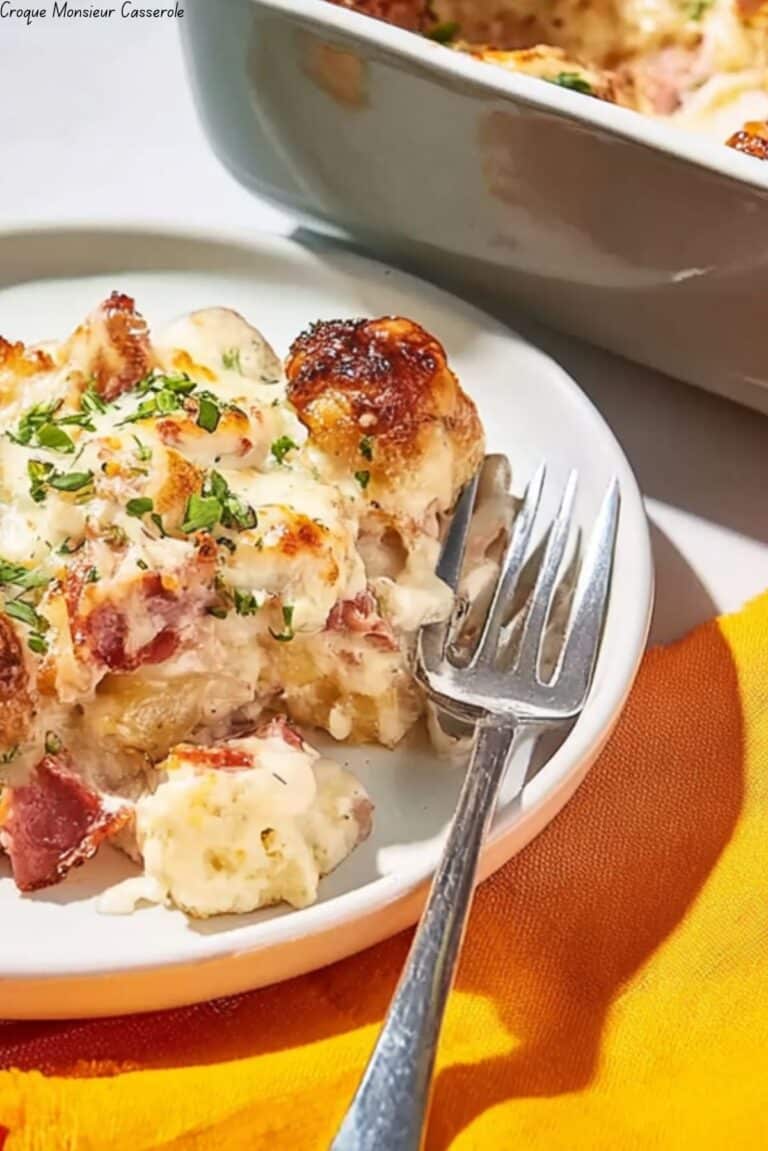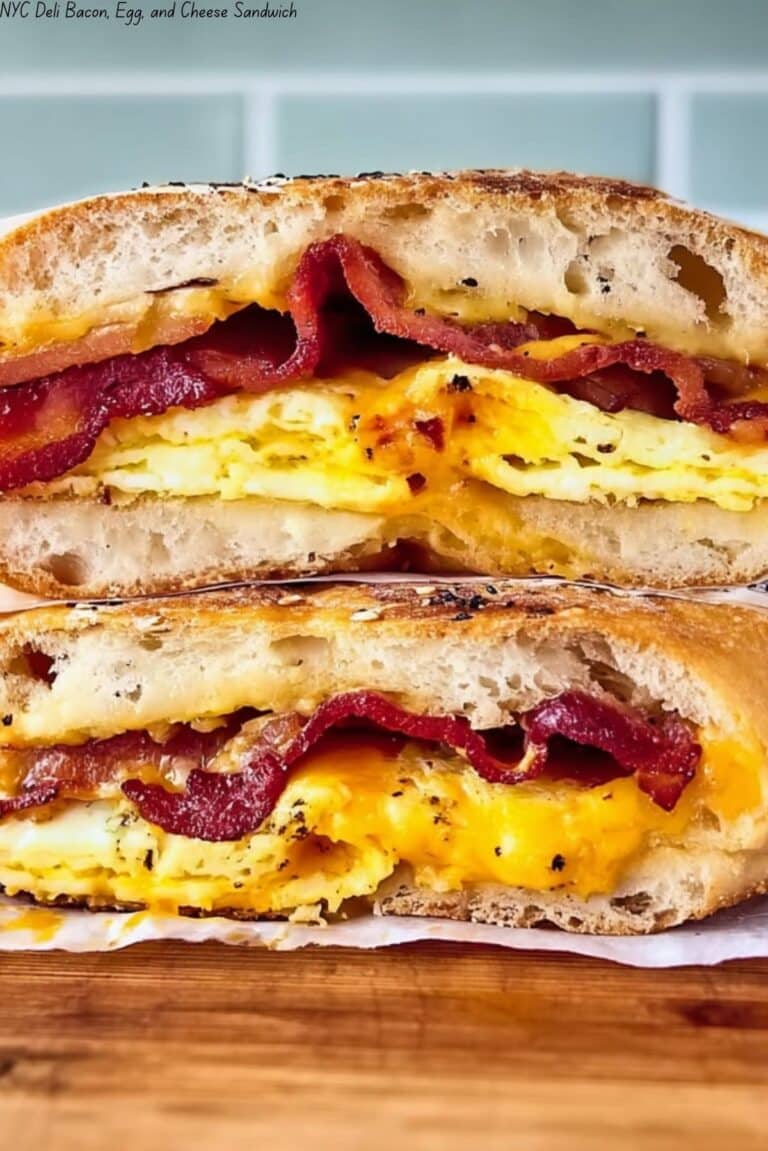Scotch Eggs

Scotch Eggs are a classic British dish that combines the goodness of hard-boiled eggs with flavorful sausage meat and crispy breadcrumbs. They are not only delicious but also easy to make, making them a perfect dish for brunch, picnics, or as a hearty snack. As a food enthusiast with a passion for creating easy yet impressive dishes, I can assure you that this recipe will become a favorite in your household.
Why You’ll Love This Recipe?
- Great flavors: The combination of savory sausage and creamy eggs creates a mouthwatering flavor profile.
- Quick prep time: With simple ingredients and straightforward steps, you can whip up these Scotch Eggs in no time.
- Perfect for meal prep: These eggs are a convenient grab-and-go option for busy days or as a party appetizer.
Ingredient Notes:
- Oil for frying
- Eggs
- Pork sausage
- All-purpose flour
- Beaten eggs
- Seasoned bread crumbs
Step-by-Step Instructions:
- Boil eggs and peel them.
- Wrap each egg in sausage meat.
- Coat each sausage-wrapped egg in flour, then beaten eggs, and finally in seasoned bread crumbs.
- Fry the Scotch Eggs until golden brown.
Helpful Tips:
- Make sure the oil is hot before frying to achieve a crispy exterior.
- Use your favorite sausage for a personalized touch.
- For a healthier option, you can bake the Scotch Eggs instead of frying them.
Expert Tips for the Best Results:
- Chill the sausage-wrapped eggs before coating to prevent the sausage from falling apart during frying.
- To add extra flavor, mix herbs or spices into the sausage meat before wrapping the eggs.
Serving Suggestions:
Enjoy Scotch Eggs with a side of tangy mustard or a refreshing salad. Pair them with a cold beer or a cup of tea for a satisfying meal.

Storage and Reheating Tips:
Store leftover Scotch Eggs in an airtight container in the refrigerator for up to 3 days. Reheat them in the oven to maintain their crispiness.
Frequently Asked Questions:
- Can I use different types of meat for the sausage?
- Yes, you can use chicken, turkey, or even vegetarian sausage for a different twist.
- Can I make Scotch Eggs ahead of time?
- Yes, you can prepare them up to the coating stage and refrigerate them until ready to fry.
- Can I freeze Scotch Eggs?
- While they can be frozen, the texture may change slightly upon thawing.
- How do I know when the eggs are cooked through?
- Make a small incision in one egg to check if the sausage and egg are fully cooked.
Conclusion:
In conclusion, Scotch Eggs are a delightful dish that is versatile, delicious, and easy to make. I encourage you to try this recipe and impress your friends and family with these flavorful treats. Don’t forget to share your feedback and experience with us! Cheers to tasty Scotch Eggs!
PrintScotch Eggs
Scotch Eggs are a delightful combination of hard-boiled eggs wrapped in seasoned sausage meat, coated in breadcrumbs, and fried to golden perfection. A classic British pub snack that’s perfect for any occasion.
- Prep Time: 20 mins
- Cook Time: 20 mins
- Total Time: 40 mins
- Yield: 4 Scotch Eggs 1x
- Category: Appetizers
- Method: Frying
- Cuisine: British
Ingredients
Main Ingredients:
-
- 1 quart oil for frying
- 4 large eggs
- 2 pounds bulk pork sausage
Coating:
- 1 cup all-purpose flour
- 4 large eggs, beaten
- 4 cups dried bread crumbs, seasoned
Instructions
- Boil Eggs: Boil the eggs until hard-boiled, then peel and set aside.
- Prepare Sausage Mixture: Divide the sausage meat into four portions and flatten each portion. Encase a boiled egg in each portion, ensuring it’s fully covered.
- Coat Eggs: Roll the sausage-coated eggs in flour, dip in beaten eggs, then coat with breadcrumbs.
- Fry Scotch Eggs: Heat oil in a deep pan and fry the coated eggs until golden brown and cooked through.
- Serve: Let the Scotch Eggs cool slightly before serving. Enjoy!
Notes
- You can refrigerate the uncooked Scotch Eggs for a few hours before frying to help them hold their shape better.
- Feel free to experiment with different seasonings in the sausage mixture for added flavor.
Nutrition
- Serving Size: 1 Scotch Egg
- Calories: 350 kcal
- Sugar: 2 g
- Sodium: 600 mg
- Fat: 25 g
- Saturated Fat: 8 g
- Unsaturated Fat: 12 g
- Trans Fat: 0 g
- Carbohydrates: 15 g
- Fiber: 1 g
- Protein: 20 g
- Cholesterol: 200 mg
Keywords: British recipe, pub snack, fried appetizer


